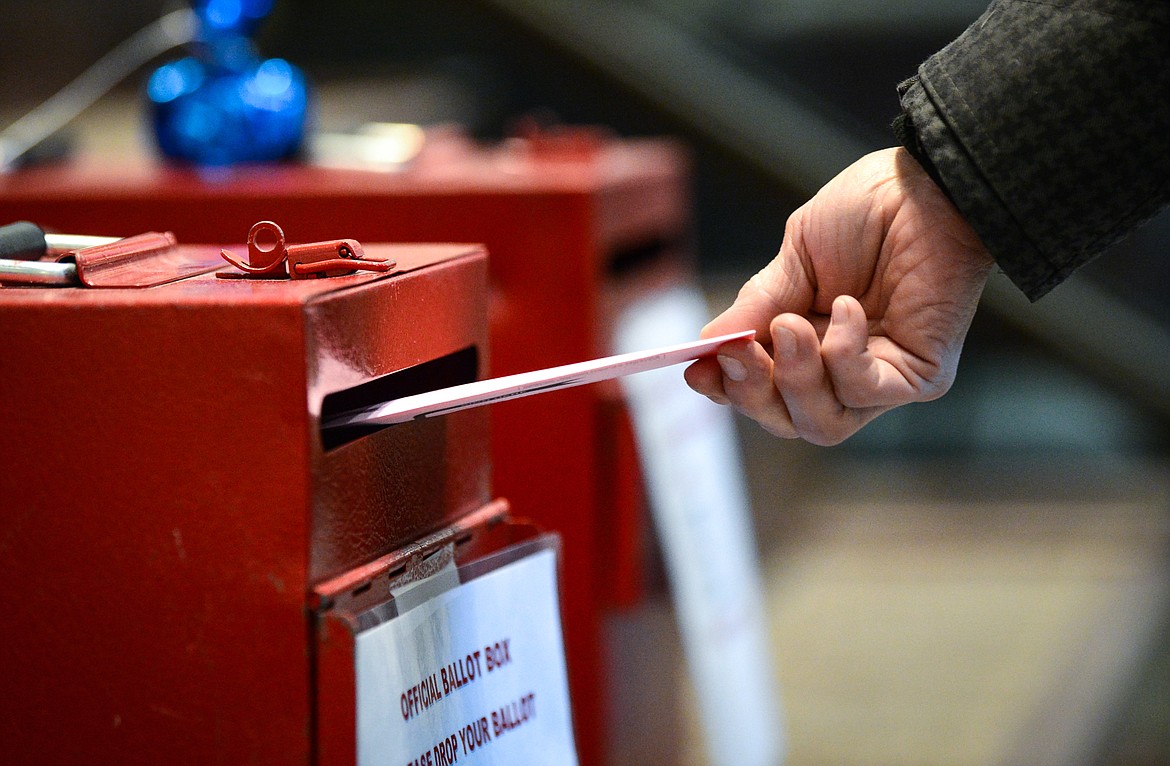Proposal to change Montana primary elections advances with Supreme Court order
Montana voters are one step closer to getting to decide if they want to change primary elections so the top four vote-getters advance — regardless of party.
Currently, Montana voters in a primary choose which party’s ballot they want to vote, but in August, a group called Montanans for Election Reform Action Fund proposed a constitutional initiative to change the way primaries are held.
Attorney General Austin Knudsen incorrectly found the ballot issue, BI-12, to be illegal. He argued it tried to make more than one amendment to the constitution, but the Montana Supreme Court disagreed.
In an order Wednesday, justices instead directed the attorney general to submit a ballot statement to the Montana Secretary of State to keep the proposal moving forward.
Former Rep. Frank Garner, a Kalispell Republican and member of the reform group, said organizers are still reading through the decision to fully understand it, but he’s pleased with the progress.
“I was happy to see the Supreme Court put Montanans back in charge of their election system,” Garner said in a phone call.
If supporters can collect enough signatures, the issue will appear on the November 2024 general election ballot. Garner said so far, Montanans have liked the idea.
He and other organizers with Montanans for Election Reform have said this ballot issue and others they have proposed aim to put voters back in control of the political system rather than special interest groups or factions tied to political ideologies.
“As we’ve been going around doing coalition building, the feedback from people has been tremendous,” Garner said. “Most of the people we talk to feel like we could be doing better.”
In the unanimous decision, authored by Chief Justice Mike McGrath, the justices found the proposal by Montanans for Election Reform offers changes that go together hand-in-glove and don’t require voters to make separate decisions.
“If a proposal would affect two or more changes that are substantive and not closely related, the proposal violates the separate-vote requirement because it would prevent the voters from expressing their opinions as to each proposed change separately,” the order said, quoting from a recent decision that addressed a similar question.
BI-12 would have all candidates appear on a single primary election ballot, and the top four winners advance to the general election. The ballot “may” list their political party preference, but a candidate isn’t required to be nominated by a party to qualify.
The order said the Attorney General’s Office found the ballot issue failed to comply with the separate-vote provision in four different ways, but the Supreme Court supported the arguments of the reform group each time.
For example, the AG’s Office said in addition to choosing whether to support a top-four primary, voters also would be choosing whether to allow political parties to nominate or endorse candidates on the ballot.
But the reform group said their proposal doesn’t interfere with a party’s ability to nominate, pointing in part to a U.S. Supreme Court decision from a Washington case that found its new primary wouldn’t affect nominations. The Montana Supreme Court agreed with the reform group.
The AG’s Office also said the ballot issue required voters to make a second choice in which political offices would be covered, but the reform group said the proposal has Montanans simply decide to apply the new primary to all federal and statewide partisan offices or not.
Again, the Supreme Court supported the reform group’s conclusion.
Plaintiffs in the case are members of the group who proposed the initiative, former Republican lawmakers Garner, Rob Cook, Bruce Tutvedt and Bruce Grubbs; former Republican central committee member Ted Kronebusch; and Doug Campbell, who has run for office as an independent, Libertarian and Green party candidate.
“As MER (Montanans for Election Reform) explains, BI-12 would affect federal and statewide partisan offices but not nonpartisan and local offices,” the order said. “Moreover, in considering whether the specification of offices is closely related to the creation of a top-four primary system, we cannot envision how one could design a primary system without specifying the offices to which it would apply.”
In the order, the Supreme Court directed the Attorney General to prepare a ballot statement and submit it to the Secretary of State’s Office within five days.
Garner said the next step for the group will be to gather signatures. Statute requires signatures from 10% of total voters in Montana, including 10% of voters from 40 legislative house districts for constitutional initiatives.
If the group succeeds, they’ll work on education, a key piece of their responsibility, Garner said.
“It puts (voters) back in charge of the system they use to hire people for these important jobs of governing,” Garner said.
The same group has also proposed a separate ballot issue, BI-13. This issue would amend the Montana Constitution to require winners of elected offices to receive a majority vote versus only a plurality; if a winner isn’t apparent because of a tie, the legislature will determine how a candidate receives a majority, possibly through a run-off.
BI-13 was submitted for review on Nov. 15 to the Attorney General’s Office and the Office of Budget and Program Planning, according to the Secretary of State’s running list of proposed issues.
Keila Szpaller is deputy editor of the Daily Montanan and covers education.

